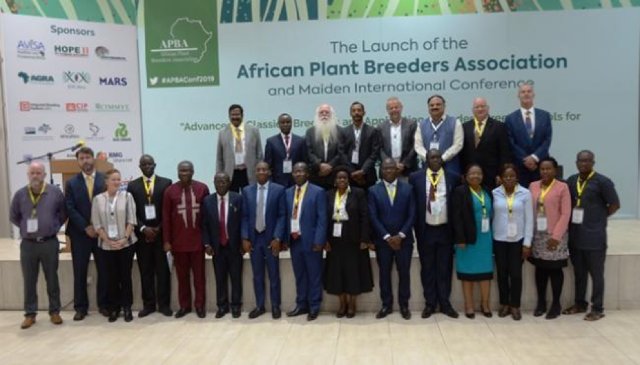The African Plant Breeders Association (APBA) has been launched to help improve upon food security on the continent.
The launch also saw the maiden international conference of the Association.
The occasion at the University of Ghana hosted by the West Africa Center for Crop Improvement (WACCI) brought together over 400 scientists, researchers, national agriculture policymakers, students, professionals, private and public sector actors, from 30 different countries.
Interim President of APBA and Director of WACCI, Prof. Eric Y. Danquah said the formation of the association “will open doors for collaborations so urgently needed to birth the ideas needed for the development of innovative solutions for agricultural development in sub-Saharan Africa in our lifetime.”
He noted the absence of a common platform for African plant breeders to network and discuss pertinent issues had militated against progress in plant breeding in Africa over the years.
“Prof. Danquah expressed confidence this will change going forward, noting, “the APBA will be a platform for Africa to showcase innovations that will bring a step-change in our agriculture.”
Representatives of about 10 international institutions including the Alliance for Green Revolution Africa (AGRA), MARS Inc., International Institute for Tropical Agriculture (IITA), AfricaRice, International Maize and Wheat Improvement Center (CIMMYT), and International Potato Center (CIP) pledged their support for the activities of the APBA.
Deputy Minister for Food and Agriculture Dr Sagri Bambangi who represented his minister lauded the APBA as a great initiative which will is bringing together plant breeders from Africa and other parts of the world to begin conversations on securing the food future of Africa through plant breeding.
He observed plant breeding is widely recognized as one of the most important tools that exist to tackle problems of global food production, food security, new pests and diseases and climate change.
The Member of Parliament for Walewale noted that through the introduction of new varieties, plant breeders are able to deliver benefits to farmers, primary processors and other food value chain actors, as well as consumers.
He advised the APBA to use their platform to inform the political debate on the importance of genetic crop improvement for environmental and socio-economic objectives through unbiased quantitative and qualitative data.
Dr Sagri Bambangi added that such science-based information should be made widely available and be a starting point for a discussion on plant breeding in Africa.
Vice-Chancellor of the University of Ghana, Prof. Ebenezer Oduro Owusu told the participants the creation of the APBA provides a common platform for networking and collective action to advocate for investment in research for the development of the staple crops in Africa.
He called on African governments, the Africa Union, sub-regional organizations and development partners to support the APBA in its drive to ensure the food and nutrition security agenda of the continent and to meet the Sustainable Development Goal (SDG) 2.
Prof. Owusu said he was hopeful that the APBA would evolve core values that will allow it to grow and “impact strongly on the socio-economic development in Africa in order to reach our goal, that is the Agenda 2063: The Africa We Want.”
In a business meeting on the final day of the conference, the constitution of the APBA was approved and the interim executives unanimously elected and sworn in to run affairs until the next conference at Makarere University in Uganda from October 25 – 29, 2021.
The University of Ghana has since commended Prof. Eric Danquah on his election as president of the APBA.
















